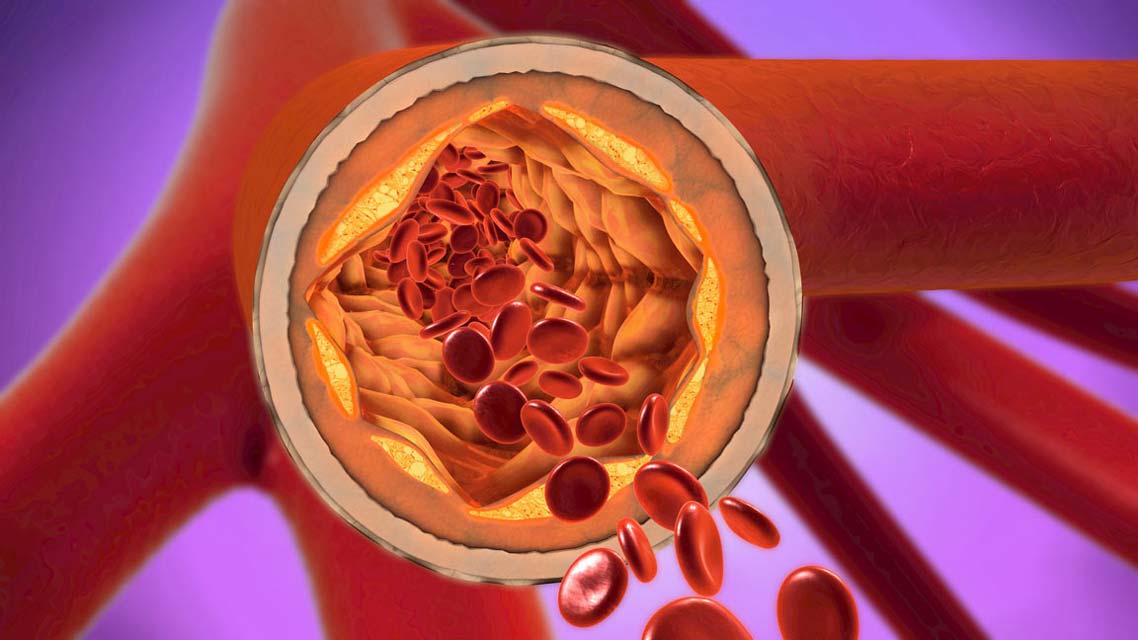Quercetin Help for Atherosclerosis

Researchers theorize that improving how the walls of arteries function with flavonoids could reduce risk of atherosclerosis. According to some clinical studies, quercetin is a powerful flavonoid that can help your blood vessels function better and improve your cholesterol numbers.
What is Atherosclerosis?
Alternately referred to as “hardening of the arteries” or “clogging of the arteries,” atherosclerosis is usually a slowly progressive condition where fats, cholesterol, calcium, waste products from cells (i.e., carbon dioxide, old or damaged parts of cells, and ammonia), calcium and other substances build up and stick to artery walls. Although how this begins is uncertain, some scientists believe it may begin with damage (caused by a variety of factors, like smoking and hypertension) that effects the functioning of the endothelium.38
As this buildup (called plaque) in the endothelium continues, it can cause restrictions to blood flow or rupture and cause blood clots that can completely clog an artery or break off and clog an artery elsewhere in the body. Either one can cause a stroke or heart attack.38
Evidence of Benefit
Results of a clinical study involving 12 healthy men of normal weights and blood pressures suggest that oral ingestion of 200 mg of quercetin could improve the functioning of arteries by significantly increasing production of vasodilating nitric oxide molecules while reducing levels of endothelin-1, a vasoconstricting peptide.33
Another clinical study demonstrated that quercetin’s antioxidant properties may also reduce the cardiovascular risks of atherosclerosis that patients in end-stage kidney failure typically suffer from. Thirty-eight patients undergoing regular hemodialysis for renal failure were divided into two groups: 26 given 100 ml of concentrated red grape juice (RGJ) a day over two weeks, and the remaining 12 as a control group not taking the RGJ supplement. A group of 15 healthy volunteers were also included in the study.39
Quercetin is the main polyphenol constituent of RGJ, and results of the study were substantial increases in HDL (the “good” cholesterol) as well as clinically significant decreases in LDL (the “bad” cholesterol), both of which lower the risks of atherosclerosis. Interestingly, even though not show in most previous studies, this study demonstrated the same effects on cholesterol levels in the healthy test subjects as in the unhealthy patients. One explanation may be the substantially higher amount of RGJ supplement given in this study (644 mg/day vs. 432 mg/day).39
a waxy substance not dissolvable in water.
blood vessel caused by contracting the vessel wall.


